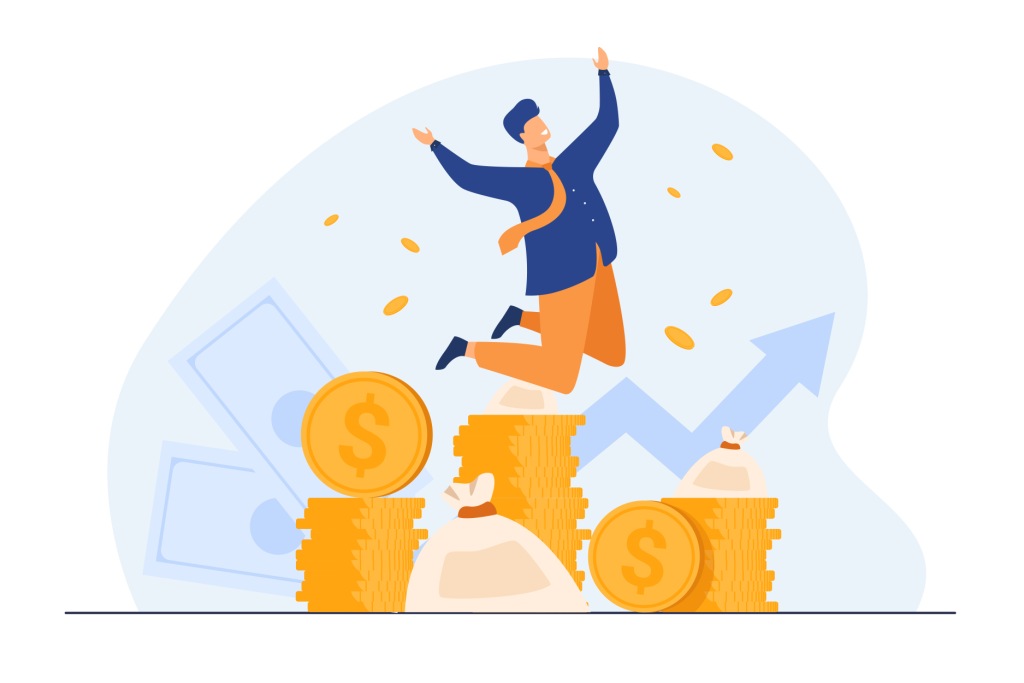04 Oct

|
Getting your Trinity Audio player ready...
|
It’s a common refrain that taking out a loan is a bad way to get yourself out of debt. This is definitely true in some circumstances; there are certainly better ways to lift yourself out of serious financial trouble than to take on more debt, especially if it’s debt that got you into trouble in the first place. It’s safe to say that as a financial option, loans certainly aren’t for everyone, and you should think before you apply for one.
However, if you apply the right amount of financial savvy and follow certain tenets, it’s definitely possible to take out loans without incurring any significant debt. In certain situations, a loan can actually be a great boon; whether it’s granting you the cash you need to complete a personal project or helping you to consolidate existing debt, loans can be helpful, too. Here’s how you can take out loans without getting into debt.
Table of Contents
Don’t take out loans if you can’t repay them
You may feel that you have no choice but to take out a loan if you’re struggling financially. In this instance, you definitely shouldn’t pursue a loan, because it can simply add to the list of things you need to repay. Getting out of debt is much harder if you pile loans upon loans, so the first thing you should do before you take out a loan is made absolutely sure you’ll be able to repay it. If your financial circumstances are even slightly shaky, then taking out the loan is likely to do more harm than good, so try not to resort to this option.
Use loans to consolidate debt
If you’re already in debt, one way you can consolidate it and thus make it easier to pay is to take out a loan. There are lots of loans available out there that are specifically geared towards helping people consolidate debt; they have terms and repayment plans built for this purpose, so make sure you’re looking for those if this is what you want to do. If you simply take out a regular personal loan for consolidation purposes, you may find that it actually negatively impacts your financial health, as it could have less favorable repayment terms than your current loans have.
Use debt to improve your credit rating
Sometimes, your credit rating can suffer if you’ve found yourself unable to make repayments or bill payments in the past. In this instance, you can actually use loans to improve your credit rating. Taking out bad credit personal loans from reputable providers, then making prompt and regular repayments, will show lenders that you’re capable of paying on time and that you can be trusted with future loans. Provided you can make the repayments, these loans won’t put you in debt; they might actually help to lift you out of it in the right circumstances.
Use loans for holidays and projects
Loans can be a great way to pay for holidays, as well as personal DIY projects you may wish to undertake. If, for example, you’re looking to improve your home, then a loan can be a good way to get the money for doing that. Similarly, as holidays can be expensive, loans can give you the cash you need without resorting to dipping into savings. These are good uses for loans, as they’re complementary to your normal financial circumstances and won’t result in plunging you deeper into debt (assuming you have a regular salary that can help you make repayments, of course). Always think about what you’re taking the loan out for.
Read the terms and conditions carefully
No matter what kind of loan you’re taking out, you should make sure to read the terms and conditions as thoroughly as possible. We know that this part of the loan often seems dry and full of legalese, but it really is in your best interests to know the terms as much as you can. There might be some nasty hidden clauses in the text that would be important to keep in mind, and even if there aren’t, you should still know how the loan provider expects you to make repayments and what might happen if you don’t manage to make them on time.
Don’t be afraid to ask for help
Many people end up in deeper debt than they should because they’re too afraid to ask others around them for help. Whether it’s friends, family, or colleagues, you may find that those around you are in a better position to help you financially than you might think, so don’t ever be afraid to ask. The worst outcome is that they tell you they’re not able to help you, which would leave you in exactly the same situation you were in before you asked them. You never know where financial help might come from, so keep your loved ones in mind; they won’t want to see you in debt.
Don’t take on more than one loan if you can help it
We understand that sometimes, financial circumstances beyond your control will lead you to seek out multiple loans. However, in general, it’s a good idea to try and keep your borrowing to a minimum; this way, you can keep an eye on what you’re spending and always make prompt repayments. Taking on multiple loans can quickly overwhelm you, and although many providers do have contingency plans in place if you can’t repay loans, you may find that your particular provider isn’t as lenient as you would like. If possible, try to keep your loan numbers low.
Image Source – freepik.com


